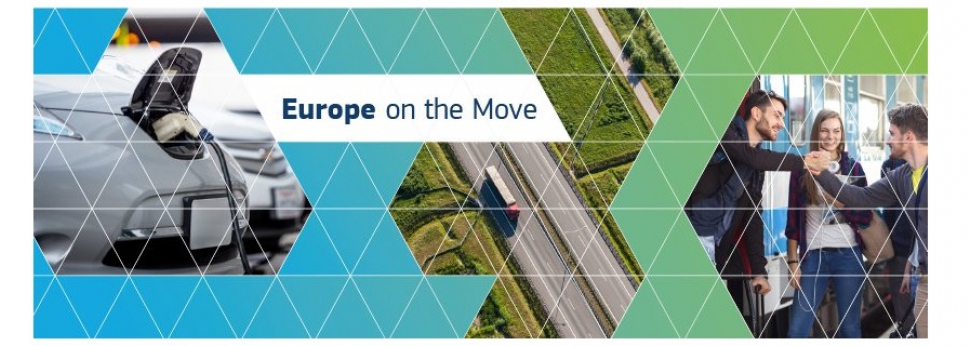Eu Commission proposes a fundamental modernisation of mobility and transport
The European Commission is proposing a fundamental modernisation of European mobility and transport. The aim is to help the sector to stay competitive in a socially fair transition towards clean energy and digitalisation.
'Europe on the Move' is a wide-ranging set of initiatives that will make traffic safer; encourage smart road charging; reduce CO2 emissions, air pollution and congestion; cut red-tape for businesses; fight illicit employment and ensure proper conditions and rest times for workers. The long-term benefits of these measures will extend far beyond the transport sector by promoting growth and job creation, strengthening social fairness, widening consumers’ choices and firmly putting Europe on the path towards zero emissions.
Mobility has a major influence on the daily lives of European citizens and directly employs more than 11 million people. Yet, the sector is undergoing a number of technological, economic and social transformations whose pace is accelerating. Harnessing these changes is essential to deliver a Europe that protects, empowers and defends – a political priority for the Juncker Commission. To this end, the Commission today adopted a long-term strategy to turn these challenges into opportunities and deliver smart, socially fair and competitive mobility by 2025. The EU will drive this transition through targeted legislation and supporting measures, including infrastructure investment, research and innovation. This will ensure that the best clean, connected and automated mobility solutions, transport equipment and vehicles will be developed, offered and manufactured in Europe.
It is accompanied by a first series of 8 legislative initiatives specifically targeting road transport. This sector is of particular importance as it directly employs 5 million Europeans, while contributing to almost a fifth of the EU's greenhouse gas emissions. The proposals will improve the functioning of the road haulage market and help improve workers' social and employment conditions. This will be done by stepping up enforcement, fighting illicit employment practices, cutting the administrative burden for companies and bringing more clarity to existing rules, for instance concerning the application of national minimum wage laws.

This first batch of 8 proposals will be complemented over the next 12 months by other proposals, including on post-2020 emissions standards for cars and vans as well as the first-ever emission standards for heavy-duty vehicles. These proposals will further drive innovation; improve competitiveness, reduce CO2 emissions, improve air quality and public health and increase the safety of transport.
Socially fair and competitive: https://ec.europa.eu/transport/sites/transport/files/mobility-package-factsheet-i.pdf
Benefits of automation, connectivity and smart mobility services: https://ec.europa.eu/transport/sites/transport/files/mobility-package-factsheet-ii.pdf
rest times for truck drivers: https://ec.europa.eu/transport/sites/transport/files/mobility-factsheet-road-initiatives-rest-time.pdf
Clean and sustainable mobility: https://ec.europa.eu/transport/sites/transport/files/mobility-package-factsheet-iii.pdf
Smart road charging
Road-charging is a national competence and Member States are – and will remain – free to introduce it on their territory or not. For those who decide to do so, the Commission is today proposing some common principles. Firstly, citizens shall not be unfairly treated on the basis of their nationality, for instance through discriminatory road-pricing. Secondly, charging should be based on the distance driven (tolls) rather than on time (vignettes). This will best reflect actual usage and pollution. Thirdly, charges based on emissions performance will make it possible to reward the most environmentally-friendly vehicles. Fourthly, electronic tolling systems will guarantee seamless mobility across Europe.
New CO2 targets for cars, vans and heavy duty vehicles in the pipeline
The Commission is therefore working on post-2020/2021 CO2 targets for cars and vans, and on the first-ever CO2 targets for heavy duty vehicles. These proposals will be made in the coming months and will further implement the “Europe on the Move” action-plan. As a first step, the Commission is today proposing legislation for monitoring and reporting CO2 emissions from heavy-duty vehicles, thereby increasing transparency and stimulating uptake of the most fuel-efficient vehicles.











































































































































